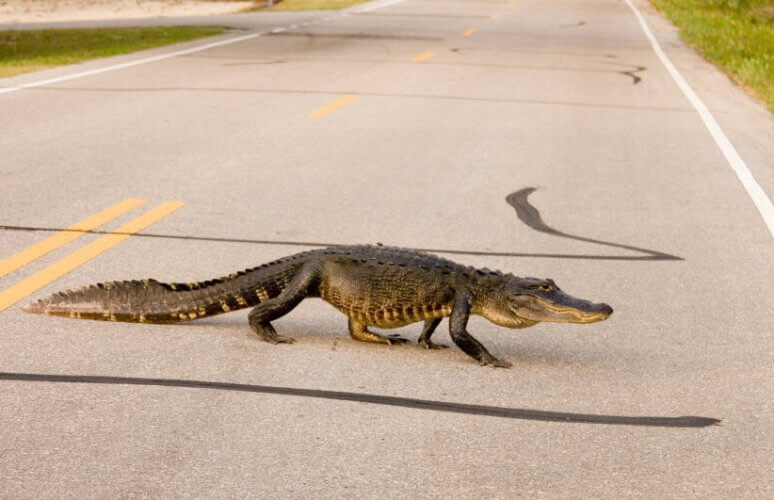
Have you seen any “road gators” on the highway lately? Would you recognize one if you saw it on the road in front of you? Hint: You don’t have to live in Florida or Louisiana to have run across one of these menaces. Your car insurance company is very familiar with them.
Road gators is a trucker term used to describe tire treads that have separated from tires on heavy trucks. These steel-reinforced pieces, which look like an alligator’s back, can be 8 to 10 feet long and weigh more than 70 pounds.
Tire safety experts warn this is the worst time of year (August-September), when high temperatures cause the most stress on tires – and result in extreme danger to unwary drivers, ripping off steering components or smashing through windshields.
Retreads are an economical way for truckers to get more mileage out of tires. But when it gets hot outside, and the road heats up, some tire experts believe the re-capped tread comes off, leaving road gators scattered along the highways.
You can tell the difference between a “tread (or belt) separation” and a failed recap: The edge of tread separation appears ragged, like torn fabric. A recap that has lost its connection to the tire has a smooth edge.
Low tire pressure causes more than two-thirds of tire failures; underinflation and high speeds can combine to increase heat in a tire. Overheating breaks down the tire’s internal pieces — both fabric and the bonds between different layers and types of rubber. During excessively hot days, the adhesive that holds these treads together loses its grip.
Stay alert, stay safe
Follow these tips to avoid getting bitten by road gators:
• Look far ahead and be aware if you see a big rig parked sitting alongside the road up ahead or start seeing larger bits of rubber lying on the freeway – a road gator may be in your lane.
• If you spot a road gator in your lane, quickly slow down before trying to swerve around it. Maintain steering control of your car.
• Never cruise alongside a big rig. Give yourself a cushion of space, so if the unexpected happens and you find yourself face to face with a gator, you have room to get out of the way.
• The shoulder may save you. If you need to swerve around a road gator, the shoulders of many interstates offer sufficient traction, as long as you are able to keep two tires in the traffic lane. Here what to do:
o Stay calm and smoothly drive toward the shoulder. WARNING: The shoulder may have less than ideal traction; it may be slippery
o Make a slow, smooth turn back onto the freeway.
o Don’t swerve more than you need to – you only have to miss the road gator by a few inches.
If you do have an encounter with a road gator that damages your car, your car insurance may help cover the repairs.
Have you ever been attacked by a road gator? Feel free to share your thoughts in the comments section below.



